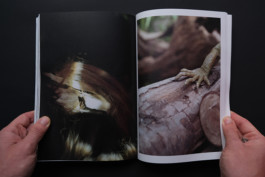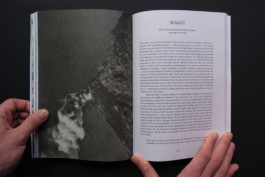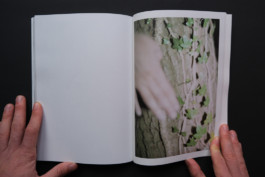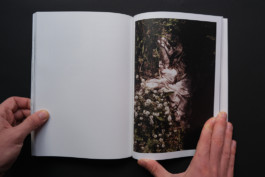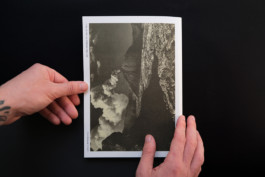All the stories we might tell
Nature, Future, Magic
self published, edition of 50
MA Thesis, MA Artistic Research, KABK
— PageNotFound, The Hague (NL), bookshop
— The Other Book Fair, art book fair, The Hague (NL), 2022
— Ghent Art Book Fair, Kunsthal Gent (BE), 2022
— Libros Mutantes Art Book Fair, La Casa Encendida, Madrid (ES), 2022
— The Hague Contemporary, Art The Hague, artists’ books exhibition, The Hague (NL), 2021
17x24 cm
124 pages
39 images
~ 20900 words
~ 126000 characters
738 sentences
180 paragraphs
141 footnotes
1 h 26 min reading time
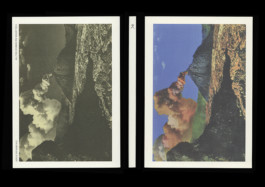
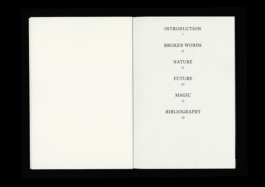
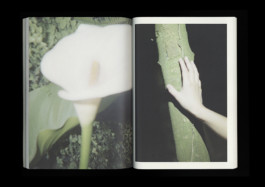
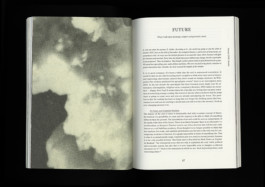
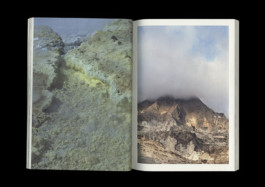
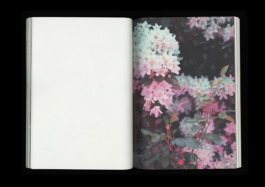
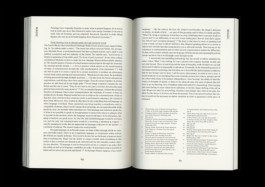
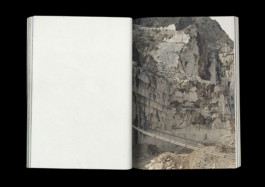
Words produce worlds, language divides things into categories and allows for certain
things to exist and not for others. Starting from the intersectional lines between
feminisms and ecocritical thought, I explore the power of language from three entry
points: Nature, Future and Magic. The concept of Nature is often used as a transcendental
device for legitimization. Nature is used to mask a ‘norm’, passing it off as objective
and immutable. The prescriptive uses of the natural—and the distinction between what
is natural and what is artificial—have been similarly harmful both for the environment
and for marginalized subjects such as women. Also a Future is something linguistically
produced. The idea regarding the times to comeis the manifestation of the horizon
of a possibility. In imagining a certain future, or in the impossibility to conceive it, we allow
for the regeneration of other times, the reiteration of the past or for the possibility
of the new to be born. What is considered real and what is not, namely the separation
between facts or fables, is the first act of worlding. Magical thought troubles this
distinction as conventionally conceived: it’s a form of refusal, an effective word,
an act of worldmaking and another cosmology. Through the questioning of these three
binarisms, this research attempts to contribute to the downfall of dualistic
and universalistic thought and the recognition of its categories—masculine and feminine,
machine and human, cultural and natural—as obsolete.
Winner of KABK Thesis Master Award
“The Jury finds the winning thesis wonderfully written: it’s complex, layered, knowing, reflective. Using carefully chosen words to question language. They appreciate the high ambition of this thesis. It is a true master thesis in that it explores the author’s own position in relation to the subject, the field and the world. The author explores questions that are relevant today. She is trying to unpack terms and go beyond the general definitions, pushing definitions and contradictions. The Jury was especially intrigued by ‘feminism’ in relation to ‘nature’.”
Joost Grootens, ACPA staff member, Leiden University
Astrid Vorstermans, founder Valiz Publishers
Marina Otero, director of research, Het Nieuwe Instituut
